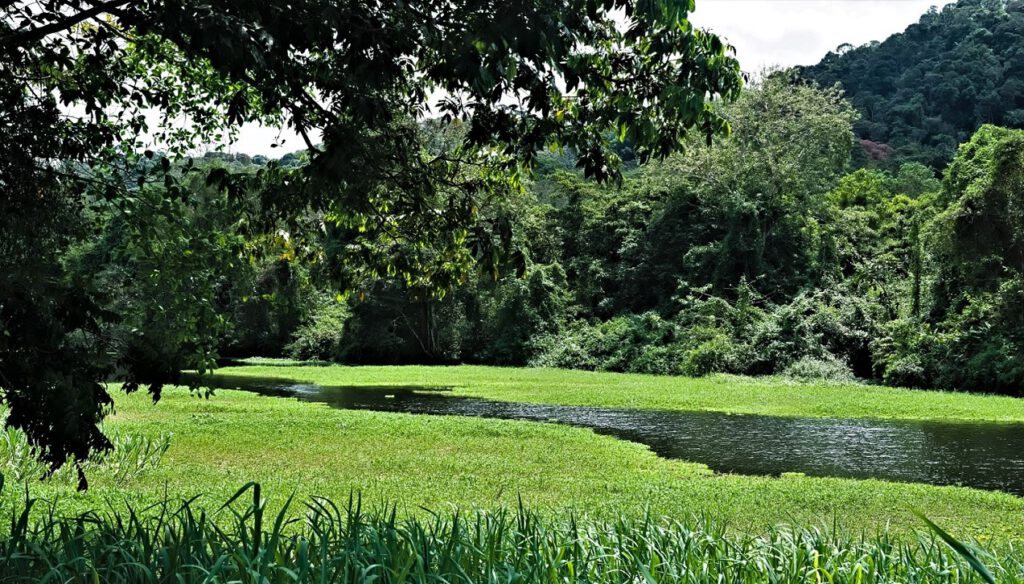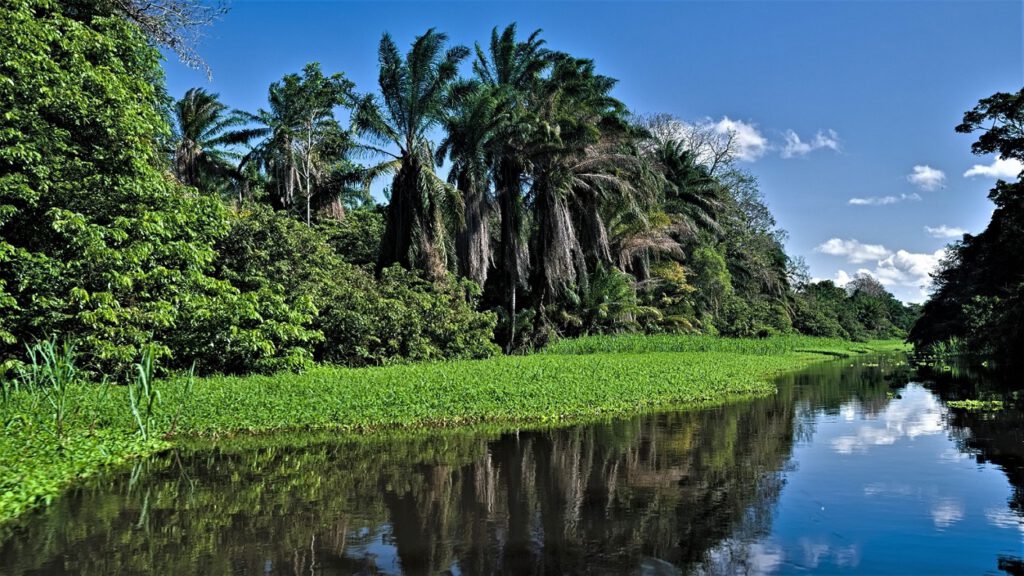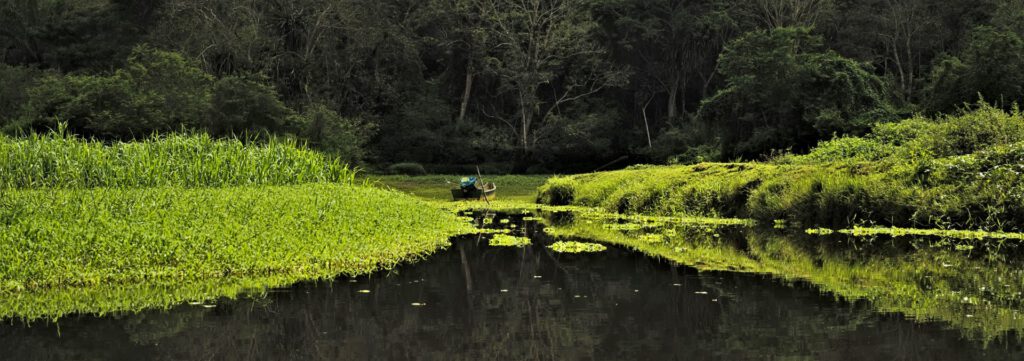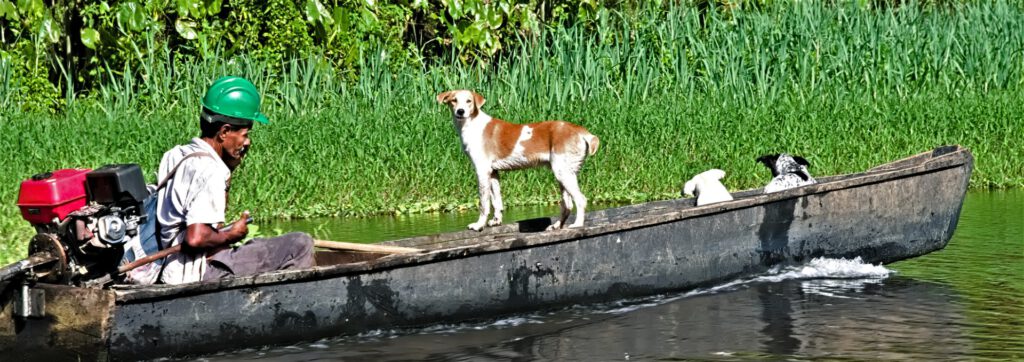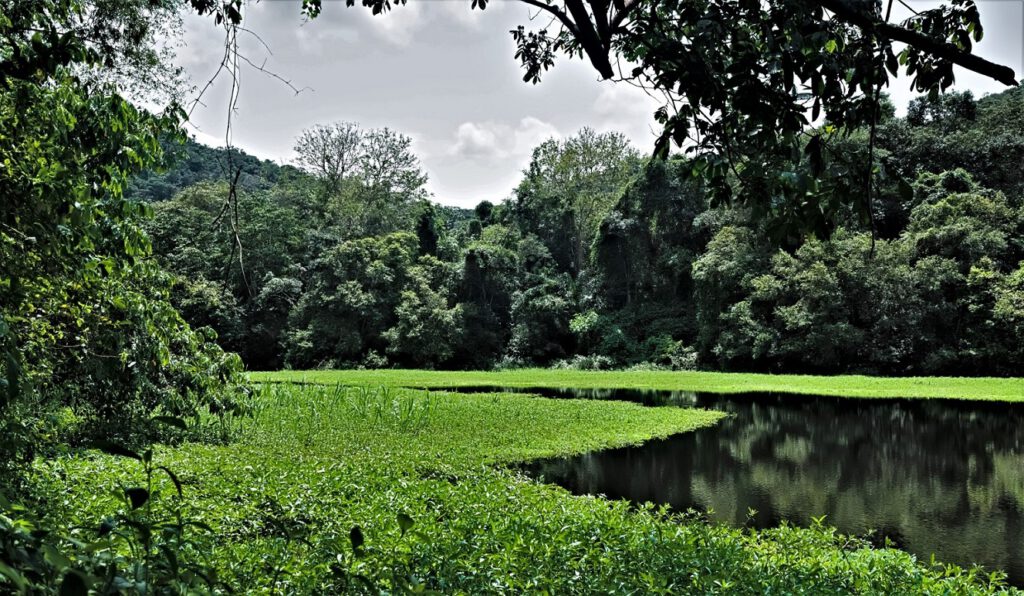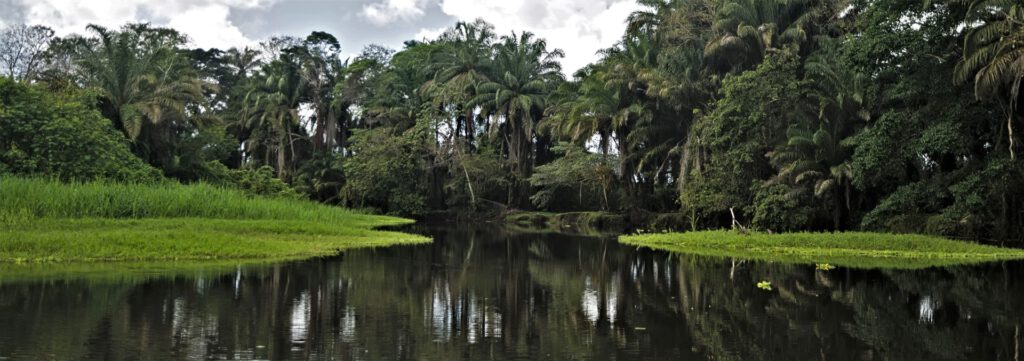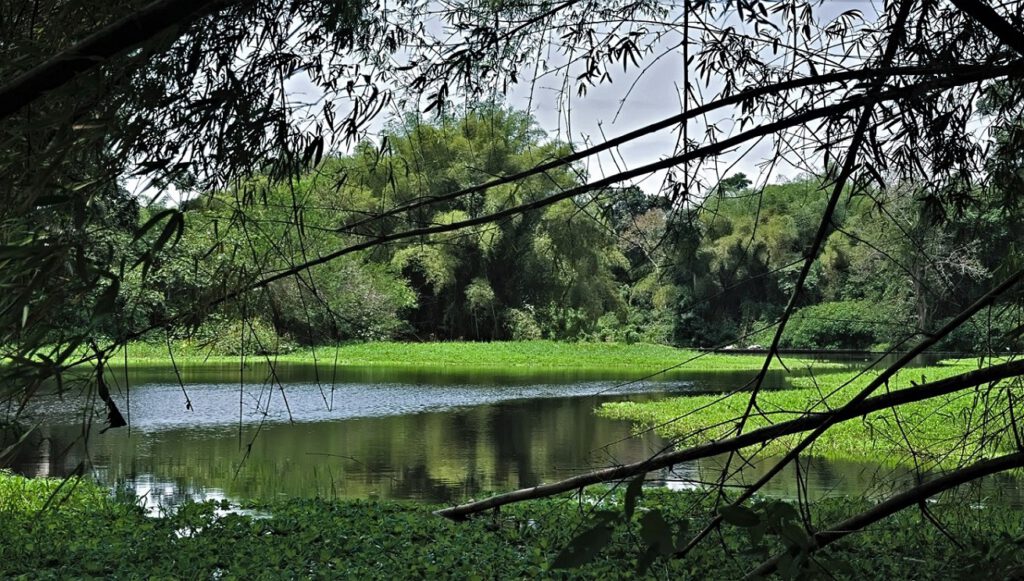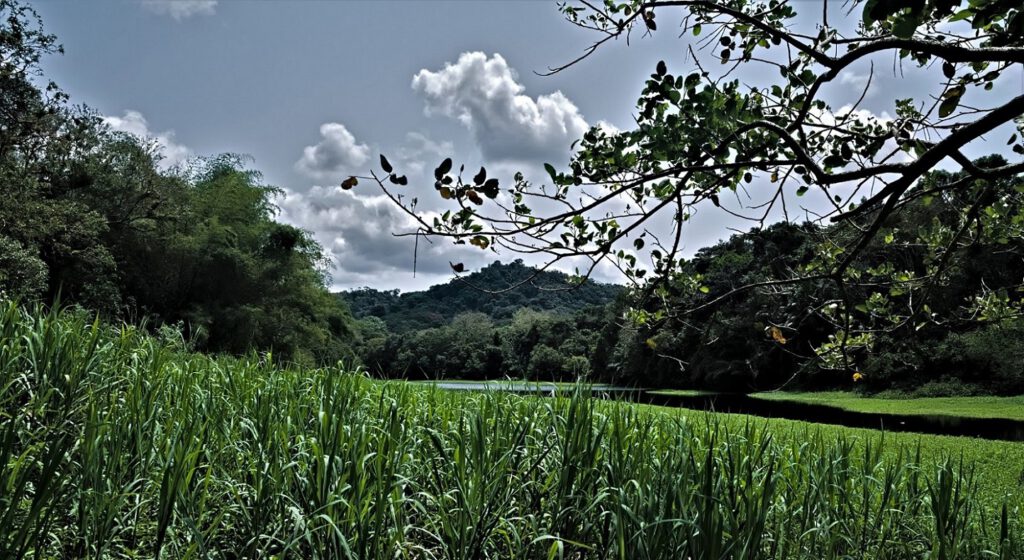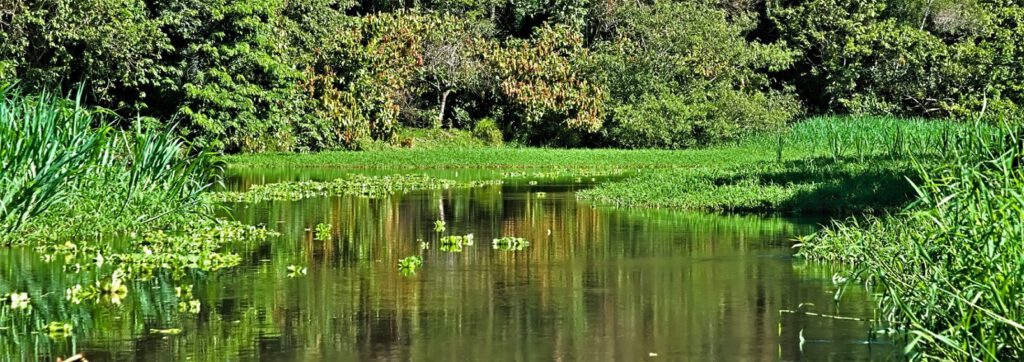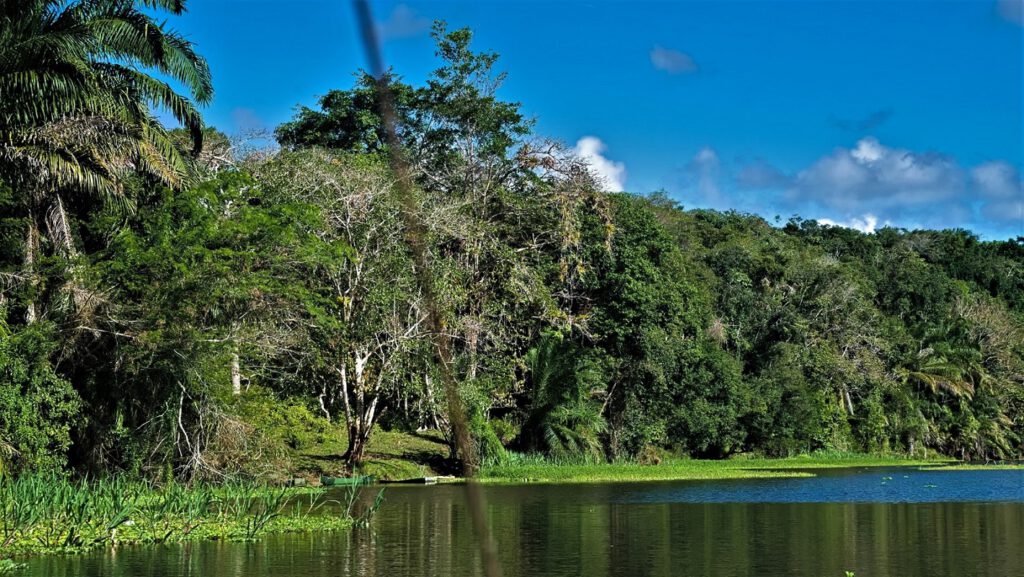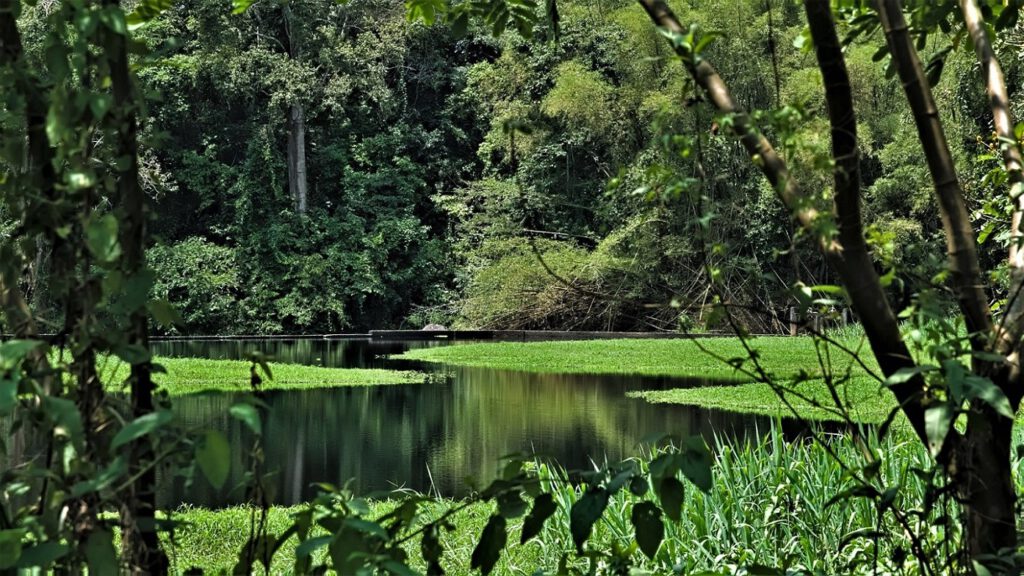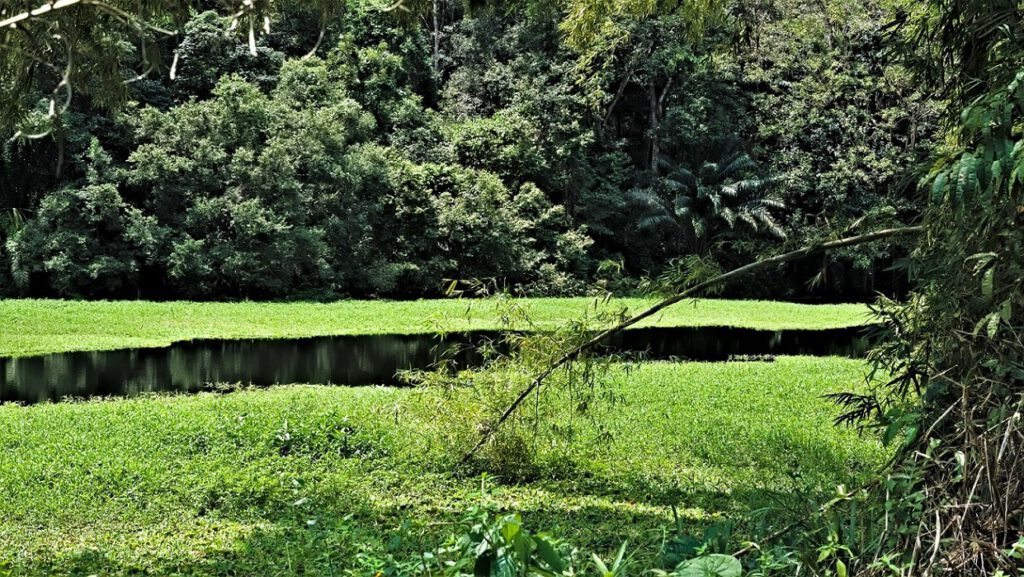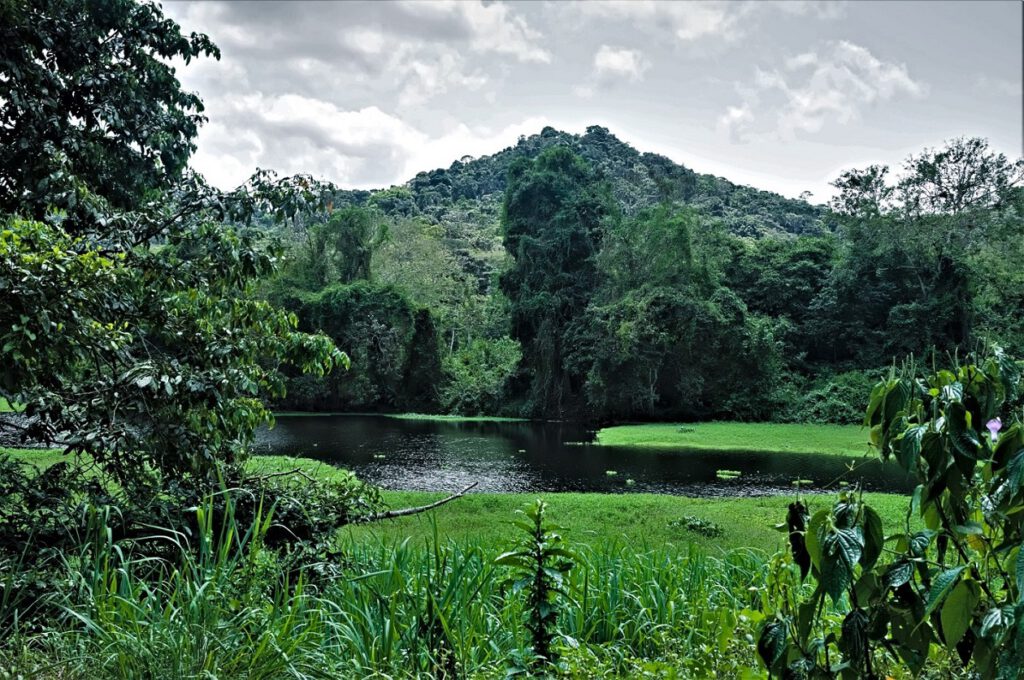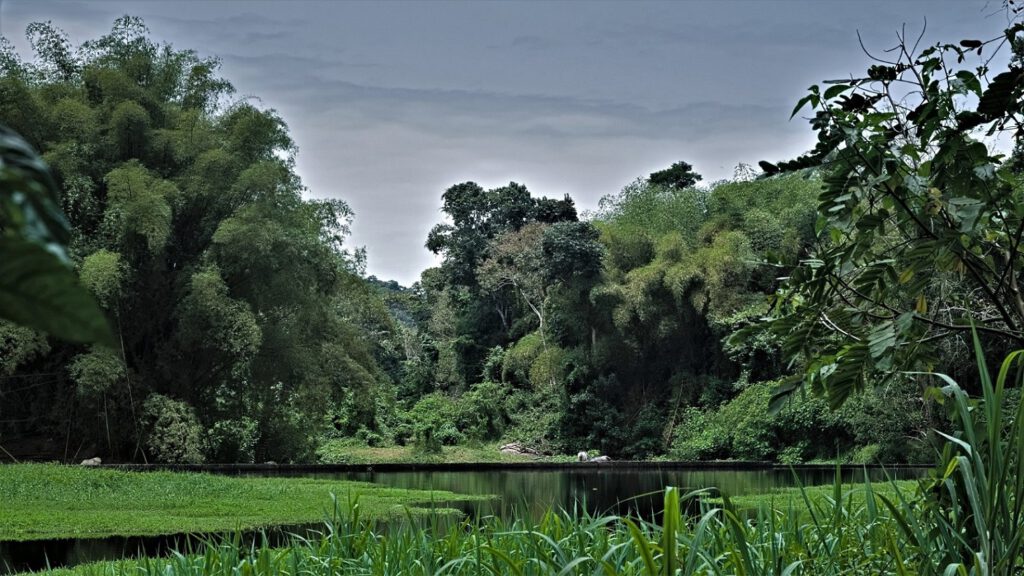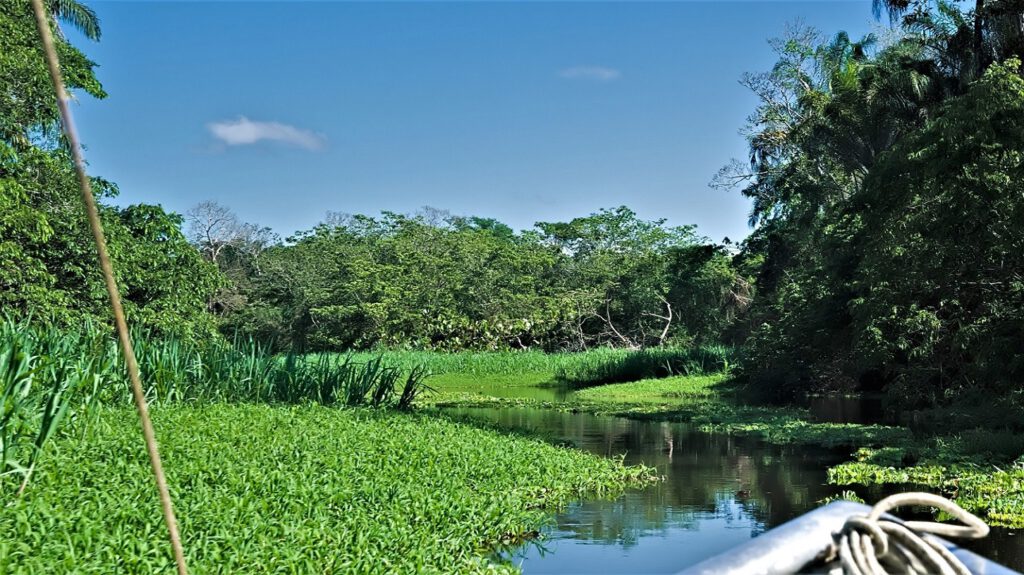
The Rio Almada is a river in the southern region of the state of Bahia, Brazil. It originates in the Serra do Amargoso mountain range and flows for 138 kilometers in a southeast direction through the region before flowing into the Atlantic Ocean at Itaípe-Bar in Ilheus.
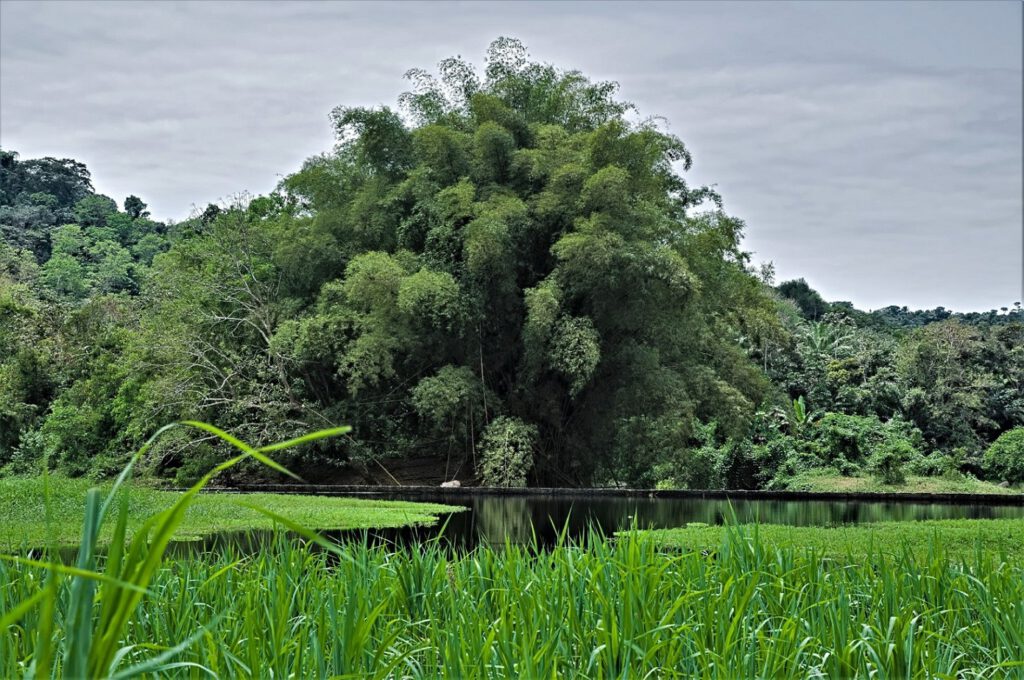
The lower section of the river passes through a protected area of approximately 157,745 hectares, known as the „Lagoa Encantada e Rio Almada“ (APA), which was established in 1993. Within the APA, it passes through the municipalities of Castelo Novo, Sambaituba, and Aritaguá. (An APA protected area, „Área de Proteção Ambiental“ in Brazil, is a special type of protected area designed to conserve natural resources while allowing for sustainable human activities within the area).
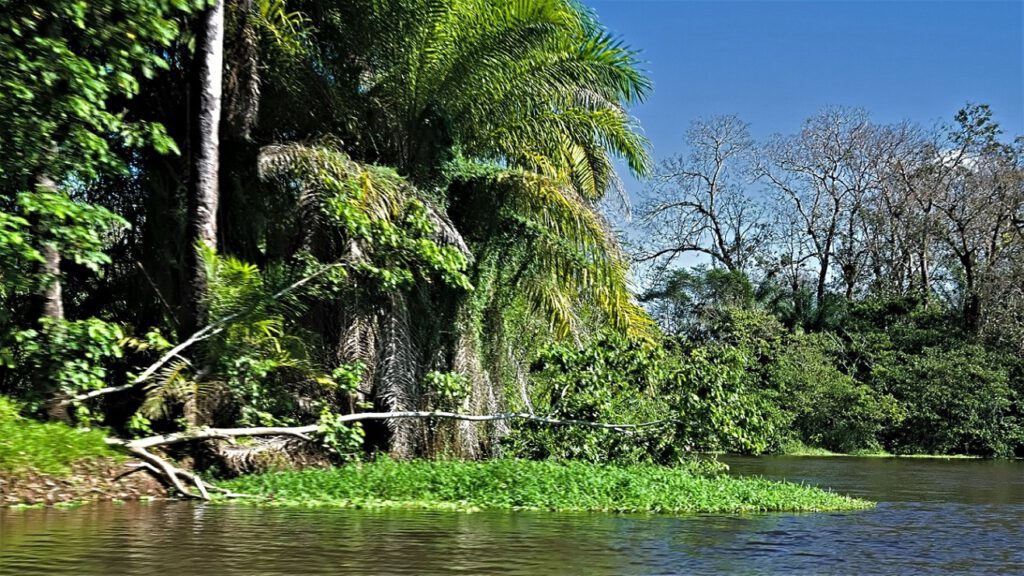
The Rio Almada serves as the main water source for the local population along its course (drinking, cooking, washing, irrigation of fields), as a source of food (fishing), and for transportation. It forms the basis for a variety of life forms, including fish, birds, amphibians, and various plants.

Despite its ecological and social significance, the Rio Almada is subject to various threats. Deforestation along its banks and in the surrounding areas leads to erosion and pollution of the river. Agricultural activities cause water pollution when pesticides and fertilizers enter the river. Additionally, unregulated settlements along the riverbanks can lead to waste and wastewater problems.
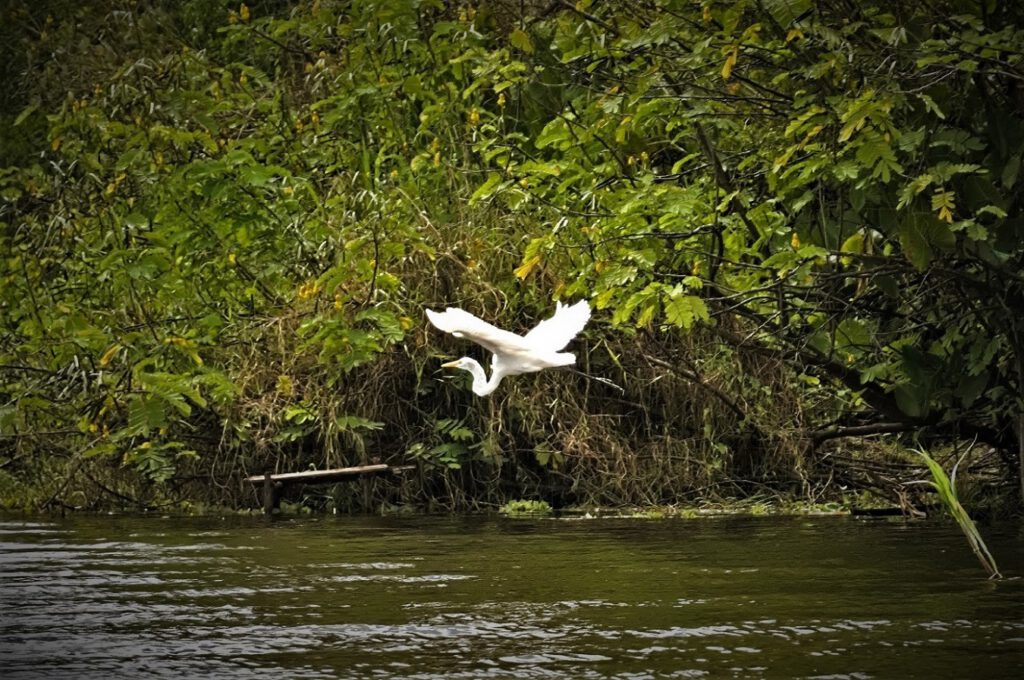
As is the case in tropical regions, the survival of the Rio Almada and the surrounding Mata Atlântica (Atlantic Rainforest) around Ilheus is in great danger. The fact that Brazil is the world’s third-largest producer of iron, bauxite (aluminum), gold, copper, nickel, coltan, etc., arouses international interest.
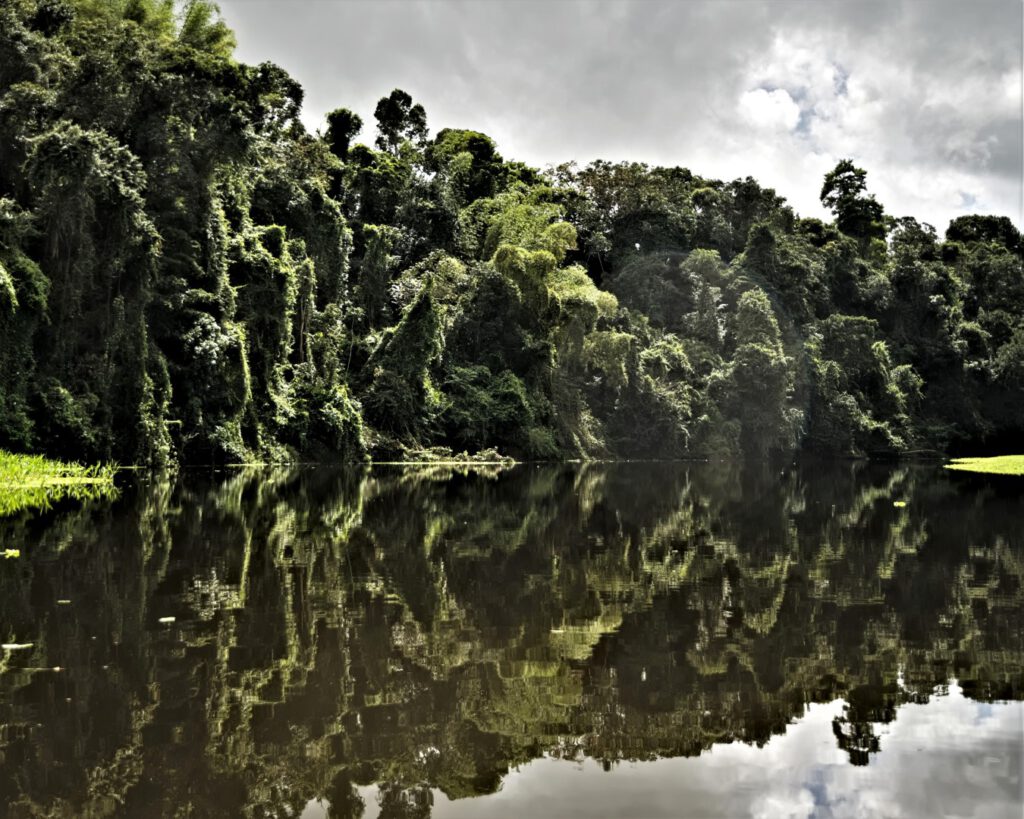
Approximately 500 km west of Ilheus is Caetité (Bahia), where iron ore is mined.
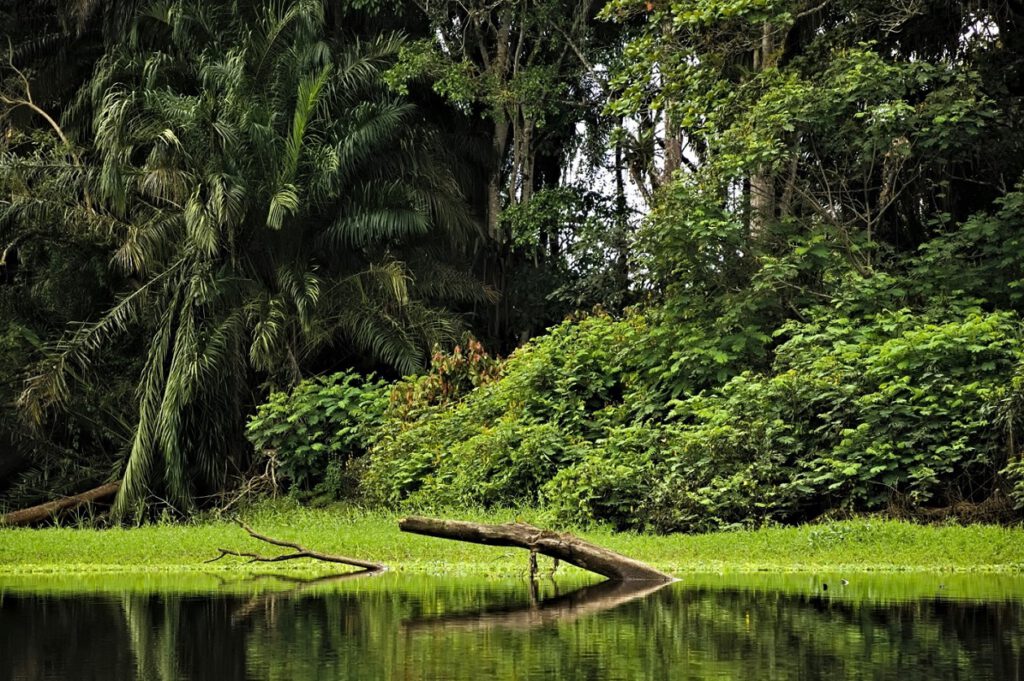
To increase the throughput to 100-120 million tons in 25 years, infrastructure is currently being developed that envisages the transportation of iron ore largely through the Mata Atlântica, past Lagoa Encantada, over the Rio Almada to Aritagua (Ilheus). With the construction of the largest port in northeastern Brazil, the „Porto Sul,“ the ore will be exported.
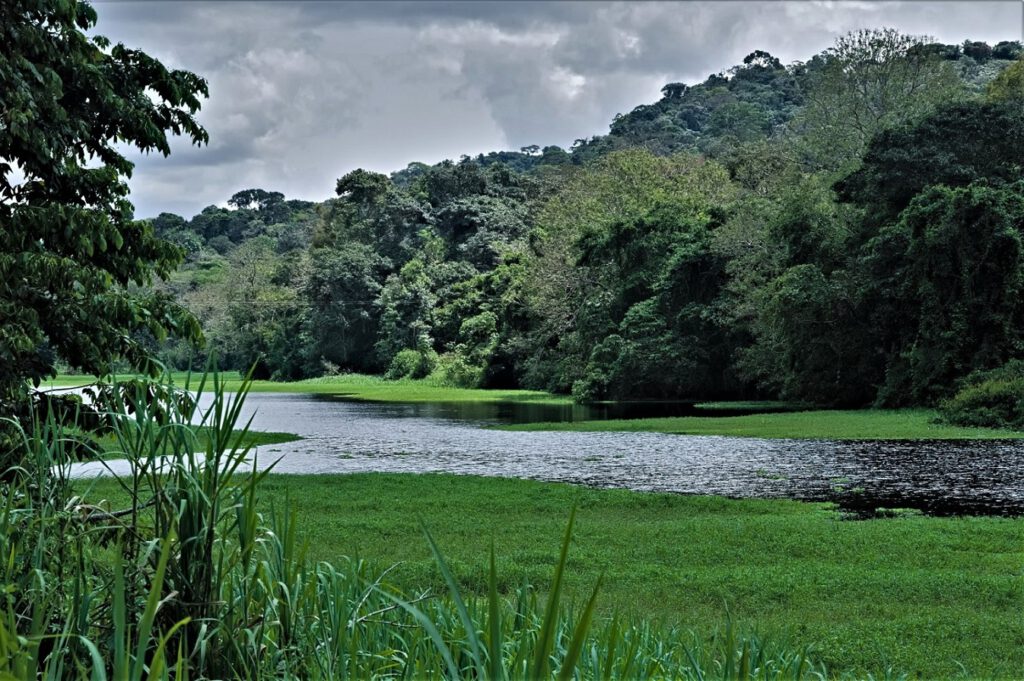
The approximately 5.6 billion Brazilian Reais project is being realized by the government of the state of Bahia and Bahia Mineração S/A (BAMIN), a Brazilian subsidiary of the Kazakhstan-based company Eurasian Natural Resources Corporation (ENRC), which is primarily interested in building the port for the export of iron ore from its mines in the state of Caetité, Bahia.
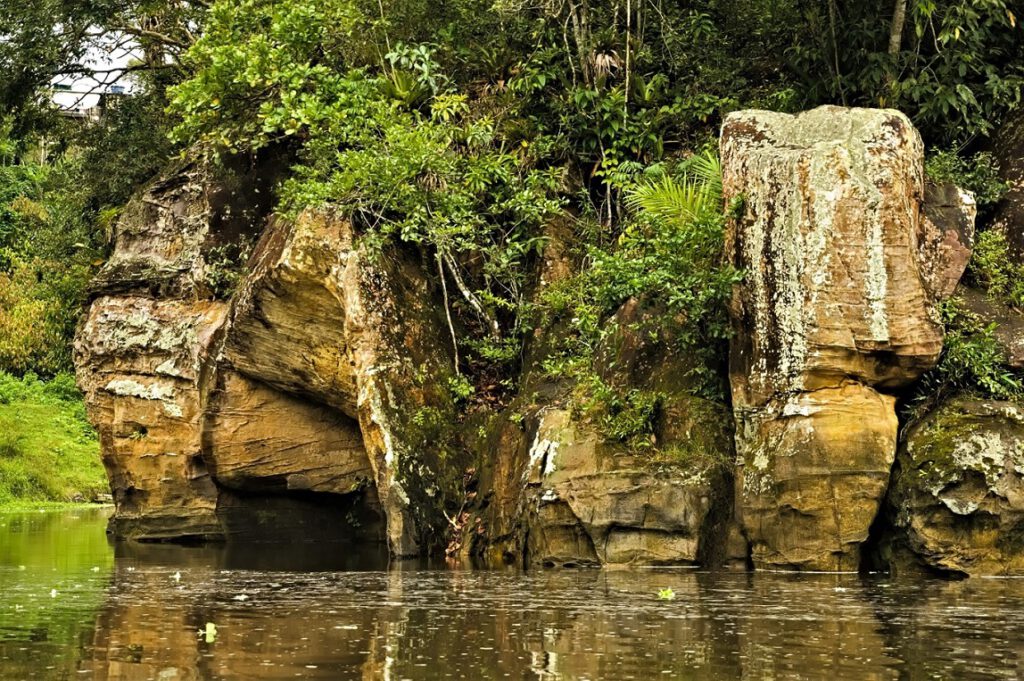
It is unclear how this will affect flora, fauna, and the local population, most of whom depend on growing ecotourism, sustainable agriculture („cabruca“), and fishing.
(Source: www.dialogochino.net)
